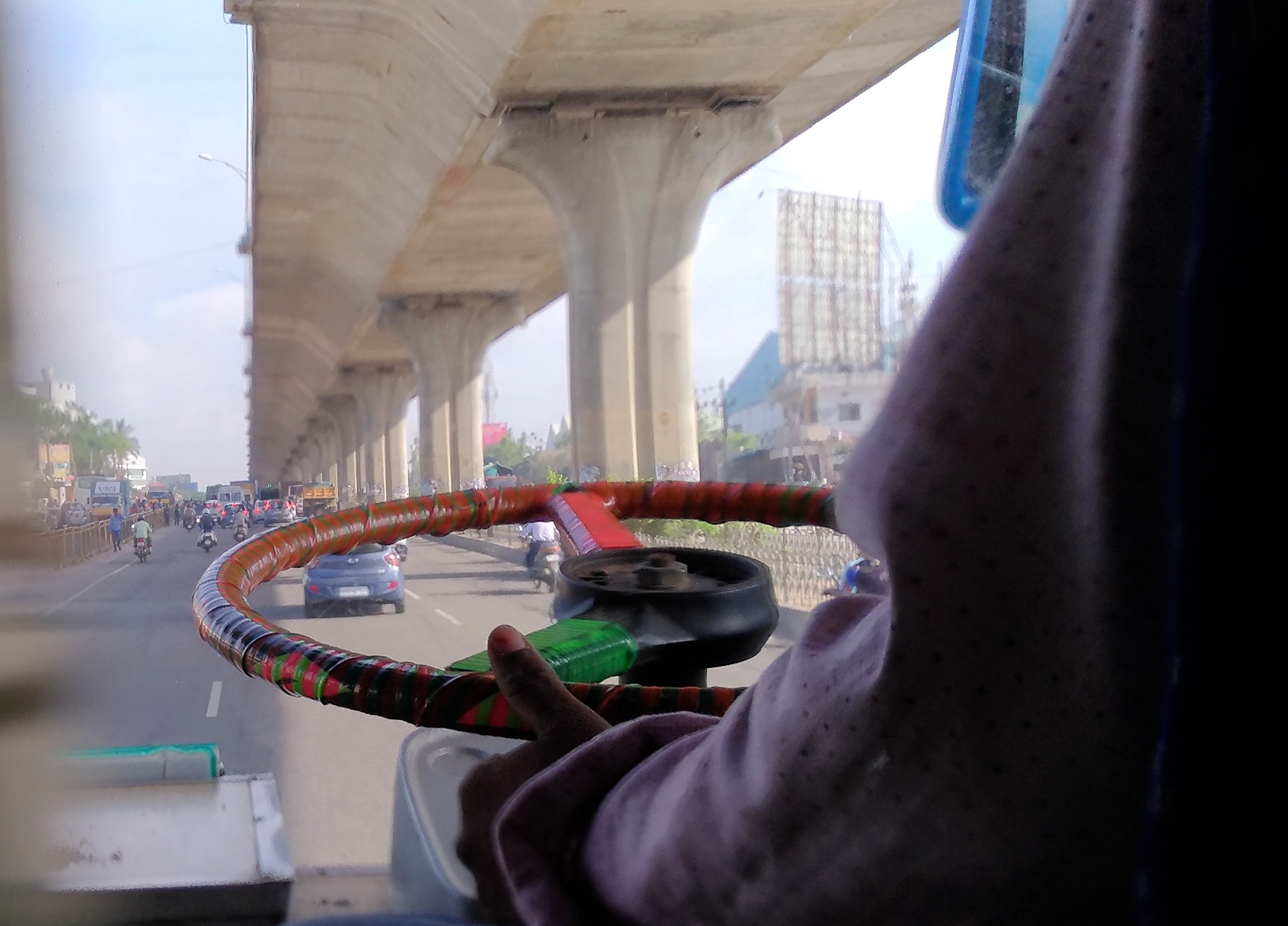Window Seats: Studying Transport and Inequality in Bengaluru, India
Jananie Kalyanaraman
Anthropology
UC Los Angeles
In Bengaluru, the “IT capital” of India, billions of dollars of state and corporate funds are channeled into hi-tech transport infrastructures (like the metro, freeways, etc.) to make Bengaluru a “world-class” city. The metro and the bus are the state-run public transport systems in the city. Due to heavy financial losses, a lack of support from the state, and a governing corporation-like logic, the bus system charges high fares and allocates routes based on revenue potential. This marginalizes many of the city’s poor. Given the inability of the state to meet the transport needs of many, especially the urban poor, this research explores the ways in which urban communities (across class, gender, caste) access and make meaning of transport systems and infrastructures. Focusing on people’s differentiated access to transport, this project shows how gender, class and socio-spatial histories of caste impact access to transport as well as the ways in which it is understood. Bringing together recent anthropological scholarship on infrastructure with scholarship on social identities and the city, this research asserts that transport systems and infrastructures are not a neutral public good, but are marked by ideologies of gender, class and caste that underscore efforts at “development” in Indian cities.

